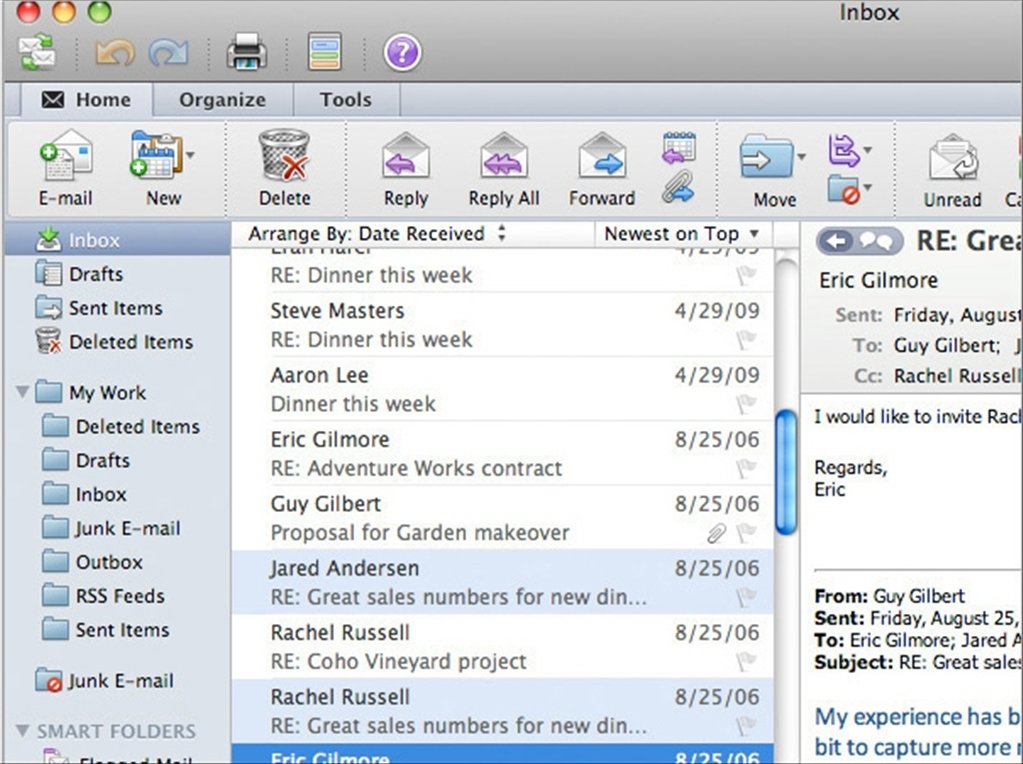

- Outlook 2016 for mac search how to#
- Outlook 2016 for mac search install#
- Outlook 2016 for mac search update#
You can update the other Office apps when it prompts you just always uncheck Outlook. If you have Microsoft AutoUpdate set to update automatically, you’ll want to set it to the middle setting, so it notifies you about updates, rather than just installing them.
Outlook 2016 for mac search install#
You can have Outlook 16.16.x without needing to install older versions of the other Office apps by downloading just the Outlook installer, rather than the whole suite. The 16.16.x line of releases continues to receive security updates, but not feature changes. Go to Microsoft’s “Office 2016 update history”, and download the latest version of Outlook (at the time of this writing, 16.16.8).

If having categories in the left sidebar is part of your workflow, there’s a workaround, at least for a little while. For the love of all things right and true, why? You can still categorize contacts, but, as far as I can tell, you can’t quickly generate a list of the contacts in the categories you want, other than by doing an Advanced Find and searching for them. Well, Microsoft doesn’t seem to have thought so, because, starting in Outlook for Mac 16.20 (December 2018), they removed the category filters. Then, you just click in the left sidebar which category, or categories, you want to see, and your contact list is automatically filtered.

Outlook just allows any contact (or anything else) to be tagged with an arbitrary number of categories of your making, like “Customer – West Coast” or “Holiday List 2018” or “Friends & Family” or what have you. It doesn’t seem like rocket science, so I don’t know why other mail systems don’t have anything equivalent.
Outlook 2016 for mac search how to#
The following articles describe how to deploy public folders in your Exchange organization in a co-existence or hybrid topology.As far as I’m concerned, one of the single best reasons to use Microsoft Outlook with Exchange mail hosting is the concept of categories. Microsoft 365, Office 365, or Exchange Online User mailbox is in Microsoft 365, Office 365, or Exchange Online

User mailbox is on Exchange 2016 CU2 or later User mailbox is on Exchange 2013 CU13 or later User mailbox is on Exchange 2010 SP3 or later The scenarios shown in the following table assume that the April 2016 update for Outlook 2016 for Mac has been applied to all clients. The following table summarizes the supported topologies for users with Outlook 2016 for Mac clients trying to access public folders in Exchange Online. With the April 2016 update for Outlook 2016 for Mac, as well as CU14 for Exchange 2013 and CU2 for Exchange 2016, the above scenario will now work for Outlook 2016 for Mac clients. Similarly, users with an Exchange 2013 or Exchange 2016 mailbox on-premises could not use Outlook for Mac to access public folders deployed in Exchange Online.


 0 kommentar(er)
0 kommentar(er)
